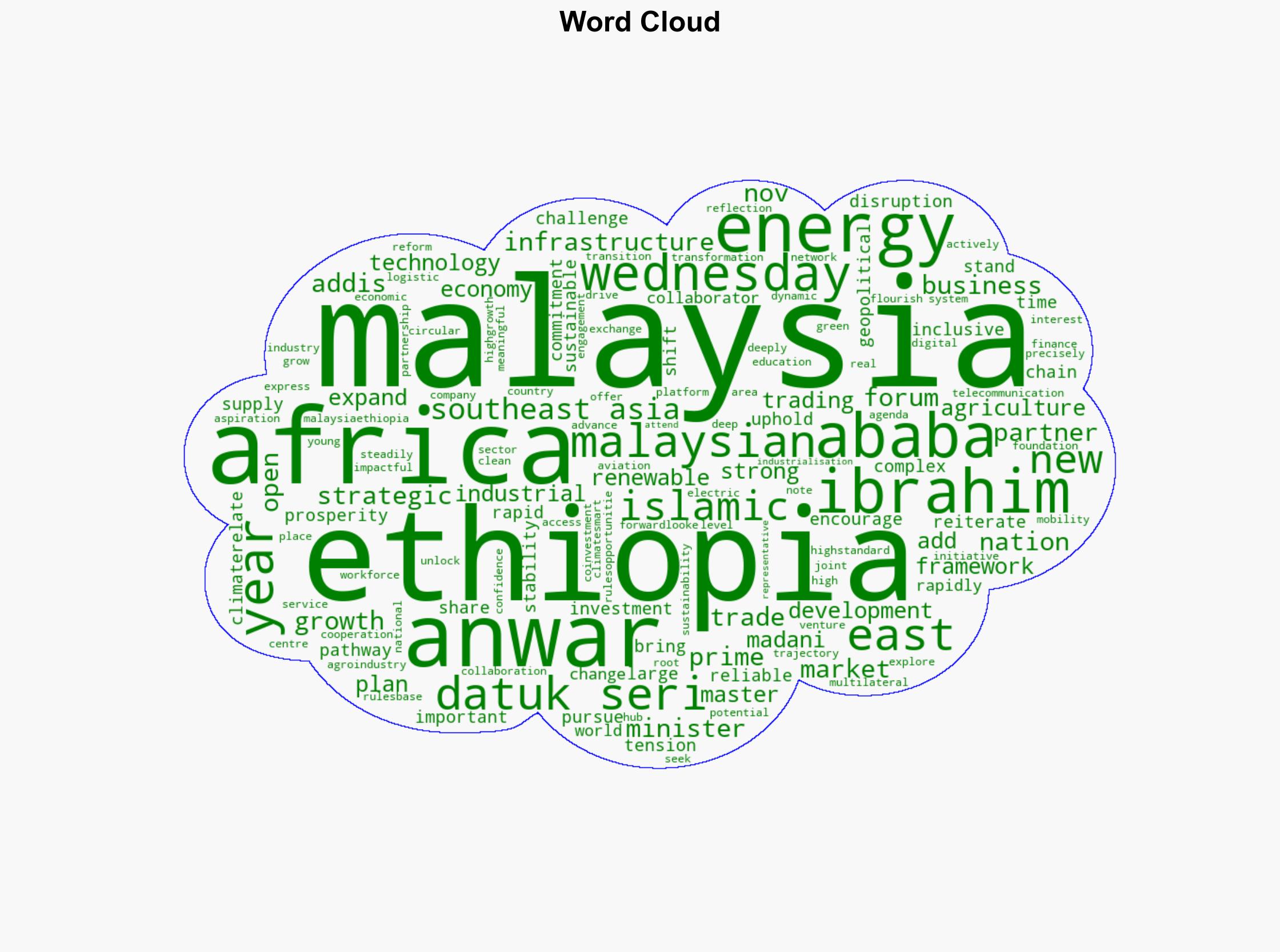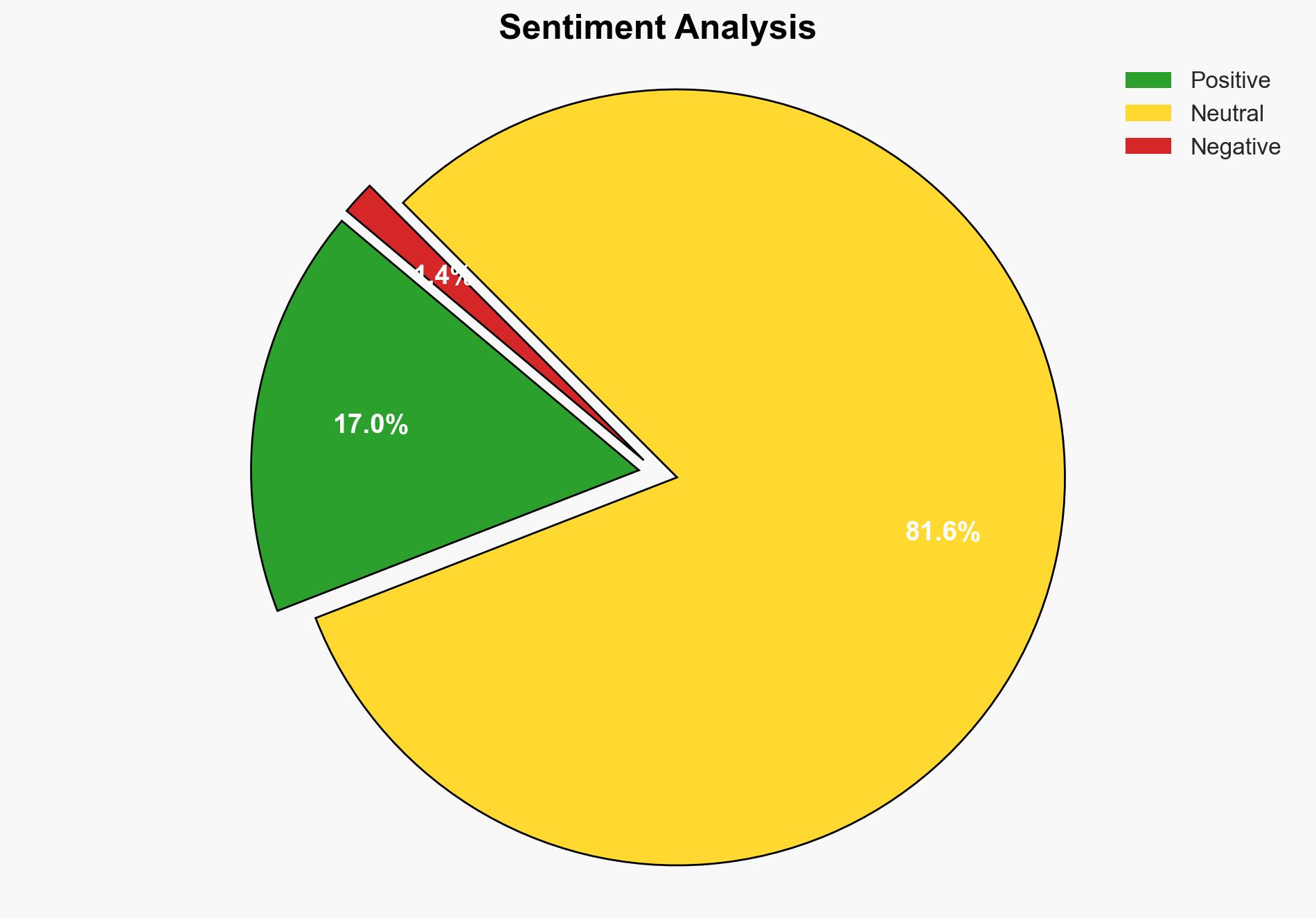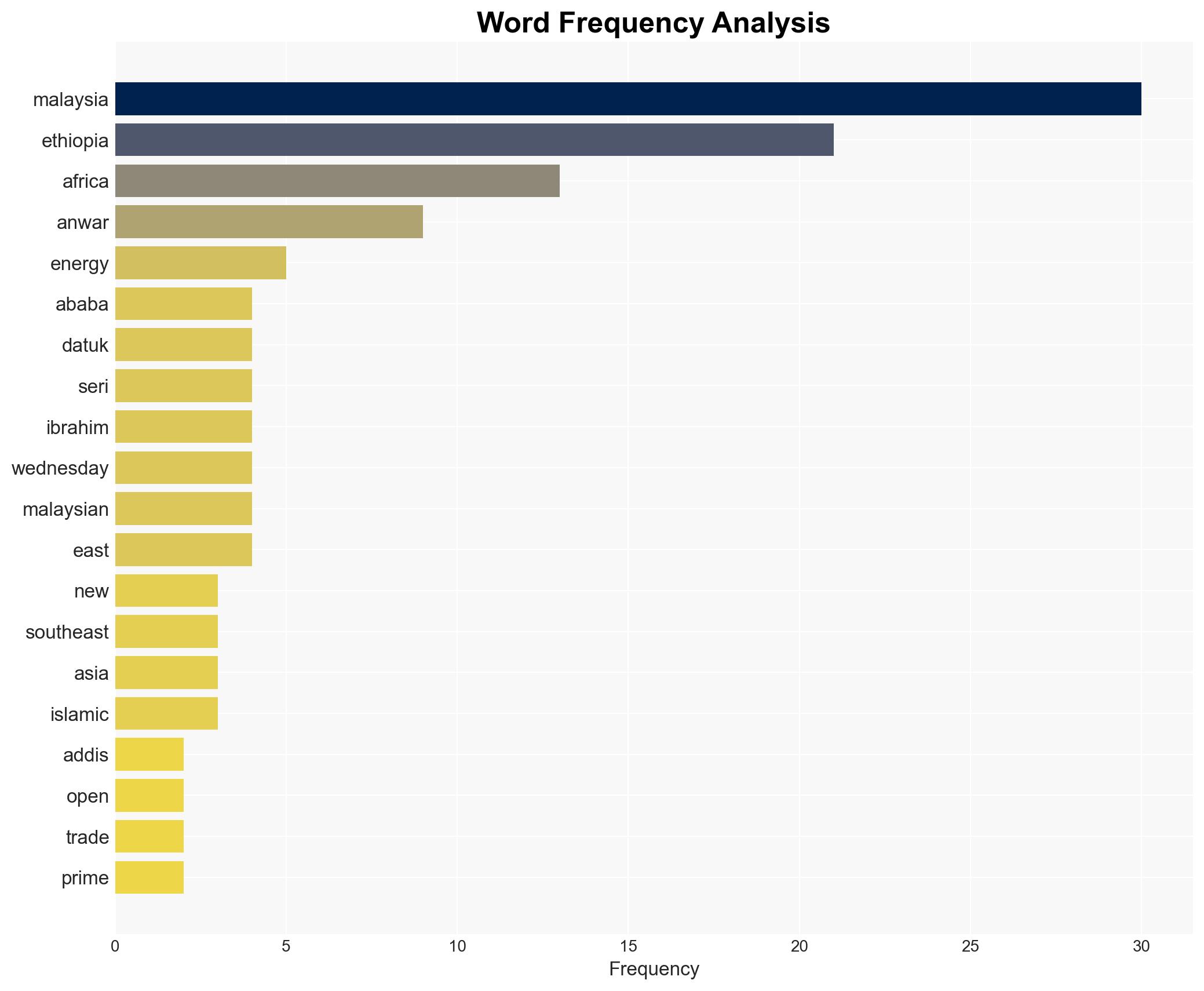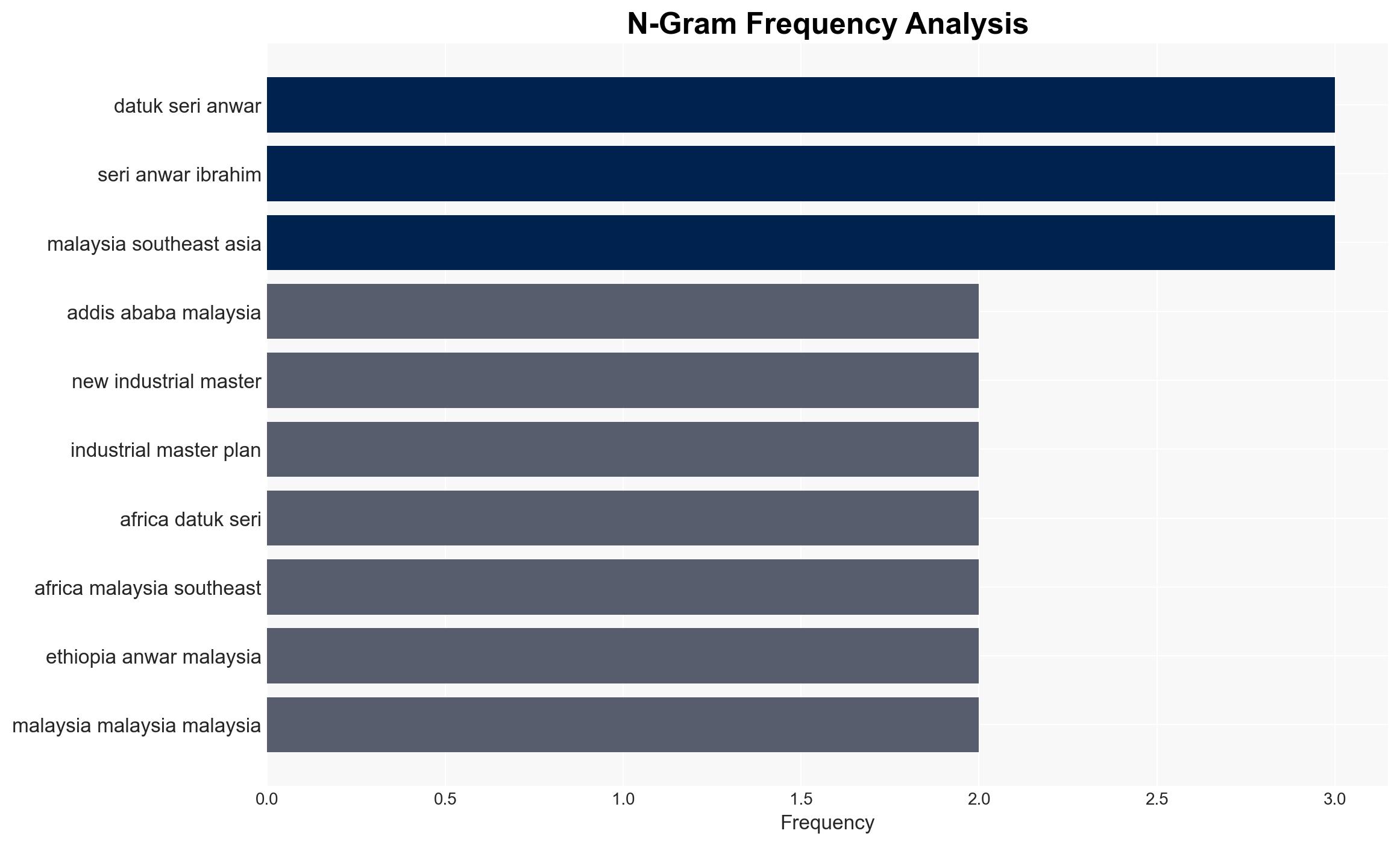Anwar Ethiopia Africa not just trade partners but strategic collaborators with M’sia SE Asia – The Star Online
Published on: 2025-11-19
AI-powered OSINT brief from verified open sources. Automated NLP signal extraction with human verification. See our Methodology and Why WorldWideWatchers.
Intelligence Report: Strategic Collaboration between Ethiopia and Malaysia
1. BLUF (Bottom Line Up Front)
The strategic collaboration between Ethiopia and Malaysia is likely to enhance economic growth and stability in both regions, with a high confidence level in its potential for success. The most supported hypothesis is that this partnership will lead to significant advancements in sectors like digital technology, renewable energy, and infrastructure. Recommended actions include fostering deeper bilateral ties and leveraging this collaboration to establish a foothold in broader regional markets.
2. Competing Hypotheses
Hypothesis 1: The collaboration between Ethiopia and Malaysia will lead to substantial economic growth and stability in both regions by enhancing trade and investment in key sectors such as digital technology, renewable energy, and infrastructure.
Hypothesis 2: The partnership may face challenges due to geopolitical tensions, supply chain disruptions, and differing economic priorities, potentially limiting its effectiveness and impact.
Hypothesis 1 is more likely due to the expressed commitment from both nations to pursue inclusive and sustainable growth, as well as Malaysia’s strategic interest in Ethiopia as a hub for East Africa. The consistent growth in Malaysia’s economic engagement with Africa supports this hypothesis.
3. Key Assumptions and Red Flags
Assumptions: It is assumed that both countries will maintain political stability and continue to prioritize economic collaboration. Additionally, it is assumed that existing infrastructure and regulatory frameworks will support the proposed initiatives.
Red Flags: Potential red flags include geopolitical tensions that could disrupt trade routes, as well as internal political instability in either country that could derail collaborative efforts. There is also a risk of over-reliance on optimistic growth projections without accounting for potential economic downturns.
4. Implications and Strategic Risks
The collaboration could lead to increased regional influence for both countries, enhancing their roles in international trade networks. However, strategic risks include potential backlash from other regional powers who may view this partnership as a threat to their own economic interests. Additionally, any failure to deliver on promised economic reforms could lead to domestic dissatisfaction and political instability.
5. Recommendations and Outlook
- Actionable Steps: Establish a joint task force to oversee the implementation of collaborative projects, ensuring alignment with both countries’ strategic goals. Engage in regular diplomatic dialogues to address any emerging challenges.
- Best Scenario: Successful implementation of collaborative projects leads to significant economic growth and positions both countries as leaders in their respective regions.
- Worst Scenario: Geopolitical tensions and internal instability derail the partnership, leading to economic setbacks and strained relations.
- Most-likely Scenario: Gradual progress in key sectors with periodic challenges that are managed through diplomatic and economic adjustments.
6. Key Individuals and Entities
Datuk Seri Anwar Ibrahim (Prime Minister of Malaysia) is a central figure in promoting this strategic collaboration. Malaysian companies and Ethiopian government entities are key stakeholders in this partnership.
7. Thematic Tags
Regional Focus, Regional Focus: Southeast Asia, East Africa
Structured Analytic Techniques Applied
- Causal Layered Analysis (CLA): Analyze events across surface happenings, systems, worldviews, and myths.
- Cross-Impact Simulation: Model ripple effects across neighboring states, conflicts, or economic dependencies.
- Scenario Generation: Explore divergent futures under varying assumptions to identify plausible paths.
- Network Influence Mapping: Map influence relationships to assess actor impact.
Explore more:
Regional Focus Briefs ·
Daily Summary ·
Support us





